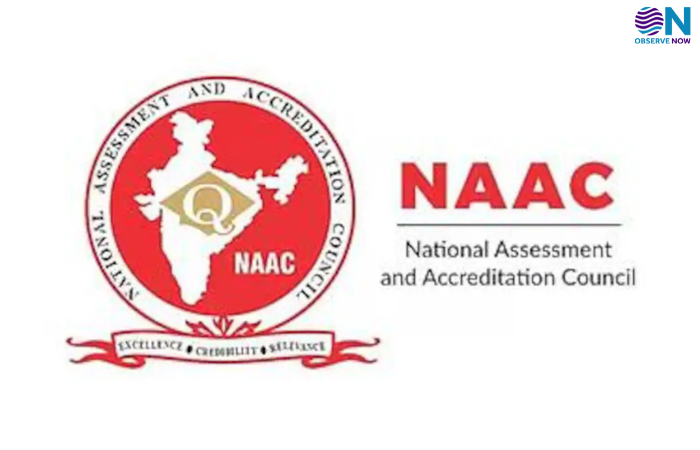NAAC to Grade Colleges Using AI-Based Model

The National Assessment and Accreditation Council (NAAC) is preparing to introduce an artificial intelligence–driven model for evaluating and grading higher education institutions across India. This initiative is part of an ongoing effort to modernize the accreditation process, improve transparency, and reduce human bias in assessments. By incorporating AI, NAAC aims to streamline data analysis, standardize evaluation metrics, and offer institutions more precise feedback for quality enhancement.
Under the existing system, colleges and universities undergo a multi-stage review process involving self-assessment reports, peer team visits, and qualitative and quantitative evaluation. While this method has been instrumental in setting academic benchmarks, it has also faced criticism for being time-consuming and occasionally inconsistent. Concerns about subjective judgment and delays in publishing results have persisted, prompting calls for reform.
The new AI-based approach seeks to address these shortcomings by automating significant portions of the data collection and analysis stages. Institutions will submit digital records, including academic performance data, faculty qualifications, infrastructure details, student feedback, and research output. The AI system will then analyze the data against pre-defined benchmarks, using statistical models and pattern recognition to ensure consistency in scoring.
According to NAAC officials, the integration of AI will not replace human evaluators entirely but will complement their work. Peer reviewers will still play a critical role in assessing qualitative factors such as teaching methodology, governance, and cultural environment, areas where human judgment remains essential. The AI system will serve as an objective tool to verify numerical data and highlight areas requiring deeper scrutiny.
One of the key benefits of this model is the potential to shorten the accreditation cycle. Currently, institutions may wait months for their final grade after completing the assessment process. With AI handling much of the data processing, results could be generated in a matter of weeks. Additionally, the system could provide interim performance dashboards, allowing institutions to track progress and implement improvements in real time rather than waiting for the next accreditation cycle.
Educational leaders have welcomed the move, describing it as a step toward aligning India’s accreditation framework with global best practices. Countries such as the United States and the United Kingdom have already experimented with AI-assisted evaluation systems in higher education, with promising results in terms of efficiency and reliability.
However, some stakeholders remain cautious, pointing to challenges such as ensuring data accuracy, preventing algorithmic bias, and safeguarding against potential manipulation. They stress the importance of maintaining transparency in how AI models weigh different criteria and the need for periodic audits of the system’s outputs.
The NAAC has indicated that the AI model will undergo a pilot phase before full-scale implementation. Selected institutions across diverse geographies and academic profiles will participate in this trial to test the system’s robustness. Feedback from the pilot will be used to refine the algorithms and ensure that the model accommodates the diversity of India’s higher education landscape.
If successful, the AI-driven grading system could mark a major shift in how institutional quality is measured, moving toward a data-rich, technology-enabled framework that supports continuous improvement while preserving the human insight necessary for evaluating academic excellence.
















